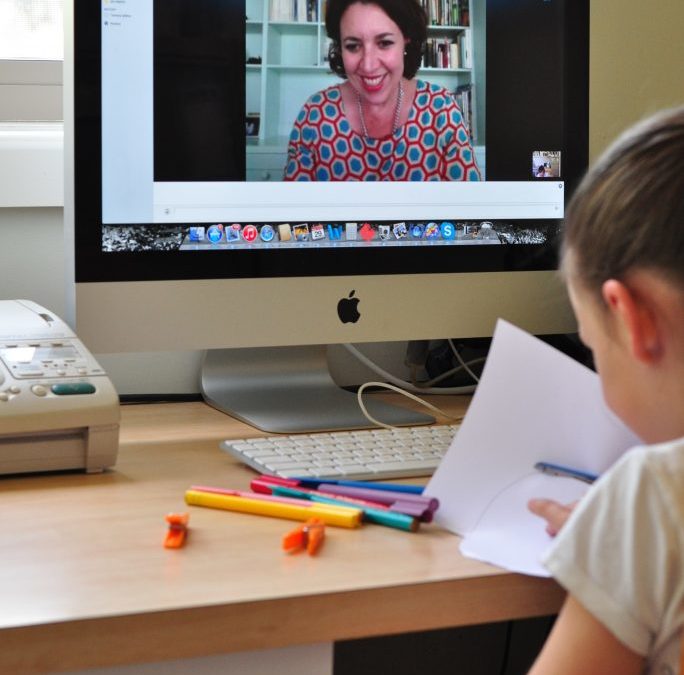Most children will go through a fussy phase with eating. And while this can be a frustrating time for parents, it is very normal and for most children it passes without any long term effects on health or development. In fact, most children will go on to enjoy a wide range of nutritious food. However, for a child with autism, eating can be much more complex.
Nutrition Challenges for kids on the spectrum
It is known that children on the Autism spectrum are far more likely to experience eating difficulties or be what are commonly called ‘selective eaters’. Common eating problems for this group include strong reluctance to try new foods, eating too few foods and rituals or rigid behaviours around eating. Some children are so highly selective; their diet may consist of fewer than 10 foods and may exclude whole food groups.
Sensory Processing Differences
Much of the eating difficulties experienced by children with Autism is thought to be related to sensory processing differences. Physical consistency and texture of food may play an important role. Or the visual appearance, that is they may only accept one colour of food. And for some children, branding, product name and packaging are important too. For example, they may eat the crackers from the green box but not from the red box.
Managing Selective Eating
Naturally, managing selective eating within the family context can be very difficult and is often extremely stressful for parents. They may be dealing with frequent meltdowns and mealtimes can become a dreaded part of the day instead of enjoyable family time. Parents are often trying to feed other children whilst still catering for their child with a restricted diet, meaning they are having to prepare several different meals at mealtimes. Family outings, holidays or dining out can be extremely difficult, if not impossible.
To add to this, perhaps friends or extended family don’t understand the challenges. Some parents may even be told by well-meaning professionals, “your child will eat when they are hungry”, which for some children with ASD simply isn’t true. Often all of this is taking place, in the background of the worry and concern about their child’s physical health.
The Role of a Dietitian
Dietitians work collaboratively with families to develop strategies to help support the child’s nutrition and feeding goals. Dietitians can help children with ASD to expand and improve their diets and reduce mealtime stress for parents. Dietetic consultation involves getting a solid understanding of the challenges the child is experiencing. This may include not just a typical day’s eating and preferred foods but routines and behaviours around foods, the physical environment and mealtime dynamics, as well as the health and development of the child.
Dietitians offer personalised strategies to help to address any nutritional gaps that may exist whilst taking into account the child’s dietary requirements, food preferences, medical needs and growth requirements. Improving a child’s nutritional intake can help with other areas of therapy, as cognitive capacity and energy levels are also optimised.
Introducing our Therapy Connect Dietitian, Kylie Mustow.

APD, IBCLC. BSc (Nutr), M(Diet)
Kylie is an Accredited Practising Dietitian with over twelve years’ experience working with both adults and children across a variety of settings. For the past seven years, Kylie has specialised in Paediatrics, after undertaking additional training at Royal Children’s Hospital, Melbourne.
Kylie has experience providing nutrition support to children of all ages, including young infants. She has worked with children with a range of medical conditions and feeding difficulties including; Autism Spectrum Disorder, developmental delays, neurological and genetic disorders, extreme prematurity, oral aversions and other complex feeding issues, including tube dependency and weaning.
Kylie is a SOS-trained feeding therapist, having completed both the basic and advanced training courses. She has also undertaken additional training in the Ellyn Satter’s Division of Responsibility Approach to Feeding, Food Allergy and Intolerances and has a Diploma of Breastfeeding Management.
Kylie is passionate about infant feeding and has recently become qualified as an International Board Certified Lactation Consultant (IBCLC). This unique dual qualification, positions Kylie as an expert in infant feeding and nutrition.
As a mother of three, Kylie is familiar with the challenges of feeding a growing family and the stresses that can bring. She is passionate about children’s nutrition, reducing mealtime stress for families and making eating a positive experience.
Therapy Connect provides online therapy services using videoconferencing technology. We provide families and children access to therapy at a location that suits, at a time that suits. “Therapy Anywhere Anytime”




